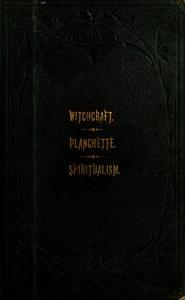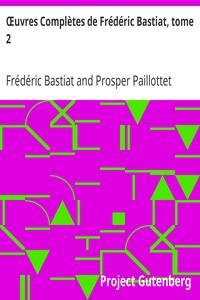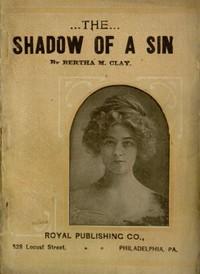|
|
Read this ebook for free! No credit card needed, absolutely nothing to pay.Words: 8223 in 3 pages
This is an ebook sharing website. You can read the uploaded ebooks for free here. No credit cards needed, nothing to pay. If you want to own a digital copy of the ebook, or want to read offline with your favorite ebook-reader, then you can choose to buy and download the ebook.

: The Salem Witchcraft the Planchette Mystery and Modern Spiritualism With Dr. Doddridge's Dream by Stowe Harriet Beecher Wells Samuel R Samuel Roberts - Spiritualism; Upham Charles Wentworth 1802-1875. Salem witchcraft; Witchcraft Massachusetts Salem@FreeBooksWed 07 Jun, 2023 the faith that we profess by voice and speech we deny by the testimony of our heart and bosom." Are not many of the usages and familiar forms of speech of modern Christendom a return to old heathenism? Are they not what St. Augustine calls a repudiation of the Christian faith? The black garments, the funeral dreariness, the mode of speech which calls a departed friend lost--have they not become the almost invariable rule in Christian life? So really and truly did the first Christians believe that their friends were still one with themselves, that they considered them even in their advanced and glorified state a subject of prayers. Arnobius, in his treatise against the heathen writers, probably in 305, speaking of the prayers offered after the consecration of the elements in the Lord's Supper, says "that Christians prayed for pardon and peace in behalf of the living and dead." Cyril, of Jerusalem, reports the prayer made after consecrating the elements in Holy Communion in these words: "We offer this sacrifice in memory of those who have fallen asleep before us, first patriarchs, prophets, apostles, and martyrs, that God by their prayers and supplications may receive our supplications and those we pray for, our holy fathers and bishops, and all that have fallen asleep before us, believing it is of great advantage to their souls to be prayed for while the holy and tremendous sacrifice lies upon the altar." A memorial of this custom has come into the Protestant Church in the Episcopal Eucharistic service where occur these words: "And we also bless thy Holy Name for all thy servants departed this life in thy faith and fear, beseeching Thee to give us grace so to follow their good examples, that we with them may be partakers of thy Heavenly Kingdom." It will be seen here the progress of an idea, its corruption and its reform. The original idea with the primitive Christian was this: "My friend is neither dead nor changed. He is only gone before me, and is promoted to higher joy; but he is still mine and I am his. Still can I pray for him, still can he pray for me; and as when he was here on earth we can be mutually helped by each other's prayers." Out of this root--so simple and so sweet--grew idolatrous exaggerations of saint worship and a monstrous system of bargain and sale of prayers for the dead. The Reformation swept all this away--and, as usual with reformations, swept away a portion of the primitive truth--but it retained still the Eucharistic memorial of departed friends as a fragment of primitive simplicity. The Church, furthermore, appointed three festivals of commemoration of these spiritual members of the great Church Invisible with whom they held fellowship--the festivals of All Souls, of All Angels, of All Saints. Two of these are still retained in the Episcopal Church the feast of St. Michael and All Angels, and the feast of All Saints. These days are derived from those yearly anniversaries which were common in the primitive ages. "Of course, my kind brother, you know that I look upon 'wisdom' organized into our daily lives, and 'love' inspiring every heart, as the only true heaven appointed saviour of mankind. And all spiritual growth and intellectual advancement in the goodnesses and graces of this redeemer I call an application of the Harmonial Philosophy. But I find, as most likely you do, that it is as hard to get the Spiritualists to become Harmonial Philosophers as to induce ardent Bible-believers to daily practice the grand essentials which dwell in the warm heart of Christianity." It is not long since the writer was in conversation with a very celebrated and popular minister of the modern Church, who has for years fulfilled a fruitful ministry in New England. He was speaking of modern Spiritualism as one of the most dangerous forms of error--as an unaccountable infatuation. The idea was expressed by a person present that it was after all true that the spirits of the departed friends were in reality watching over our course and interested in our affairs in this world. Free books android app tbrJar TBR JAR Read Free books online gutenberg More posts by @FreeBooks
: Œuvres Complètes de Frédéric Bastiat tome 2 mises en ordre revues et annotées d'après les manuscrits de l'auteur by Bastiat Fr D Ric Paillottet Prosper Editor - Economics FR Sciences et Techniques; FR Politique@FreeBooksWed 07 Jun, 2023
|
Terms of Use Stock Market News! © gutenberg.org.in2025 All Rights reserved.






